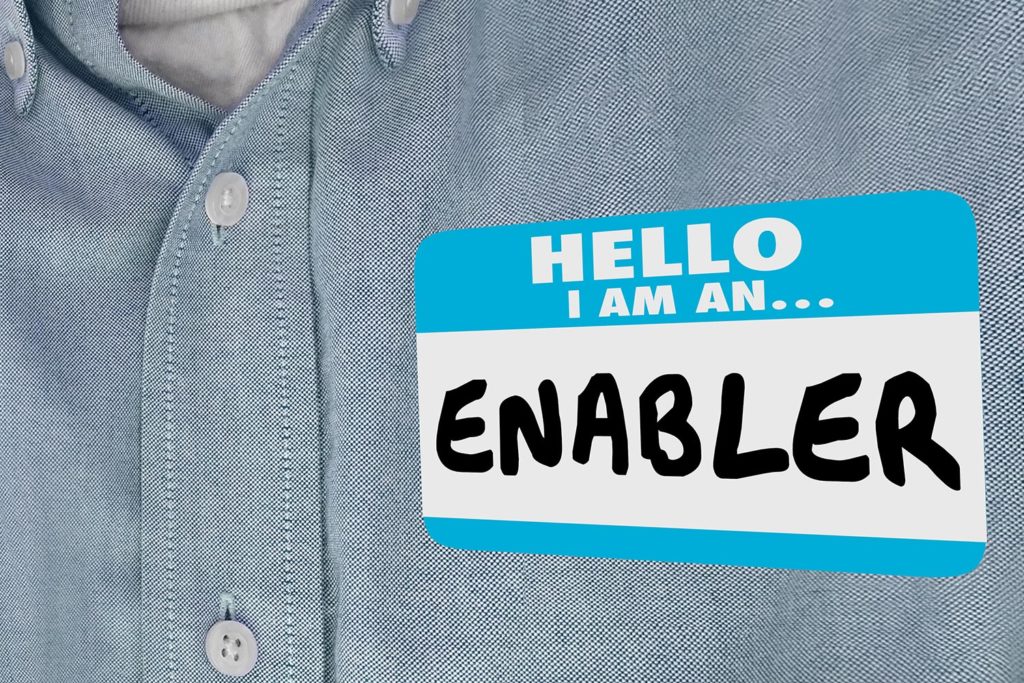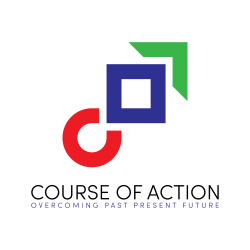
Isn’t Everyone an Enabler?
I would say absolutely. Yes, there are people who go to great strengths to ensure they are never in a position or a situation that may cause them to enable another human being for one reason or another. This may stem from them being standoffish, non-communicative, and even withdrawn from relationships, but upon sitting down to their computer or even their cell phone, they too become an enabler.
I guess we should look at some real definitions before I get started:
Merriam/Webster [i] Enable Definition:
1. To make (someone or something) able to do or to be something.
2. To make (something) possible, practical, or easy.
3. Technical: to cause (a feature or capability of a computer) to be active or available for use.
Without going too deep into the angles and levels of enabling, I honestly feel parenting and enabling go hand and hand. I would go so far as to say that we live in a world where we now find ourselves with change being an accelerated existence. Don’t get me wrong, I do believe change is part of the whole process and will always be part of the whole moving from today into tomorrow. Yet with that said, getting really honest and personal with myself as a parent allowing (enabling) my children to do certain things for selfish and even unhealthy reasons has to have a general effect on future change. A perfect example would be me as a parent laying or sitting my child down to watch TV, be it a movie, cartoon, or even as they grew older whatever it was they chose to watch, just to ensure that well honestly I could have some outlet knowing they were occupied to some degree and I was able to involve or use my time as I felt best for my personal agenda. You may be thinking to some degree this is very acceptable and you would be right, yet us as humans being more drawn to laziness as a human trait this can really allow this whole process to venture into a degree of becoming and/or teaching a very unhealthy pattern with some life-lasting consequences. Granted, I’m aging myself as it was VHS movies, Disney Channel, and even some Christian-type cartoons at the time, what could go wrong? Enabling like so many things in life falls directly into healthy and unhealthy levels sometimes all coming down to the old saying “everything in moderation.” Which moving into today’s parenting and time has really taken a turn into the digital age and from where I stand there is a much greater risk and damage at a complete accelerated rate beyond anything we have ever seen.
I initially wanted to discuss and offer some education on enabling especially how it related to addictions, but after many hours of research and reading you might just say I am a complete mess and that would be a complete understatement as I now see that this whole act of enabling is so deep and very complicated on many levels. I feel it safe to say that enabling in itself can be a form of addiction. I once read a statement on idswater.com about enabling that somewhat really rocked my whole action of processing what I once thought was enabling.
“The enabler subconsciously uses the emergency situations created by the addiction to get noticed, feel important, and participate in the relationship. Just like the behavior of an alcoholic is changed by the addiction, so is the character of the enabler. Addiction creates enablers out of loving, well-meaning people.”
Yes, that is harsh, but with that and the whole loving and caring for one, we feel a responsibility for either a family member, a spouse, a coworker, or a close friend. How can we help stop their pain, help them to get help, fix this monstrous devastating cycle that’s killing them?
I need answers.
I was sitting in a training session once where a visualization was presented by the facilitator expressing a situation where we were standing alongside someone we loved and cared for or felt some responsibility for. We were in a pool that was 4 feet deep on one end and 6 feet deep on the other. The person we were with could not swim and was only 5 foot tall and we are at the end of the pool that was 6 foot deep. We had such a need or desire to ensure that they did not drown that every time it appeared that they might go under we injected ourselves helping them back to the surface. The lesson was that if we had not injected our life-saving measures, the person on their own may have learned to float or hold their breath while bouncing and reached a part of the pool where they could stand on the bottom and find that they were completely safe. This may be a very simple visualization, but it really gives a look into the whole process of enabling, one to a degree that; not only are we injecting ourselves into a problem, we on some level become part of the problem.
It is so hard to watch someone who is in pain and even endangering themselves, especially a person we feel some responsibility for or even love. There are so many steps and actions that we can take to help, but stopping their pain or altering their pain may not be the best course of action. Every situation is different. We must know where our control starts and stops. This is one of the hardest things to grasp. We are all enablers to some degree or another and the stigma of negativity that may go along with such a title is flawed. With a support base, education, and a greater understanding of your role there can be a healthy level of enabling.
Please watch for my next blog on tools and actions to better help an addict.


As the mother of an addict (also child, sister, wife and daughter-in-law of addicts and a food addict myself), I have tried for many years to be supportive of my son without being an enabler. However, I believe I have been an enabler much of that time. It was easier for me to set strong limits before my son was diagnosed as being bipolar; that diagnosis made it even harder. Another difficulty is viewing addiction as an illness rather than a moral failing and not taking betrayals “personally” as may experts advise. Since I have had very limited contact with my son for the last couple of years following a violent experience in my home, things have been easier; I no longer worry nonstop and/or feel guilty for his lifestyle – and I am mostly successful at having almost no hope or expectation that his life, or our relationship, will change. I very much look forward to reading more of your articles and would welcome suggested reading material or activities.
Thank you for your response and a bit of your story, it is so hard yet as you have exercised gaining control only where you really have control builds strength, and granted you will always have unfillable voids in your emotions pertaining to your son. This is normal yet you are now at least managing that and it is not managing you. I will send through e-mail some info. Also, I have read a few times a book called Boundaries by Dr. Cloud I’m sure you have heard of it. It is a very good book and was amazed after the second time reading.
You’ve shed new light on the term “enabler”. I always thought of it in negative terms. Now I can see being an enabler in a positive sense as well. Thank you.
always good to know you are learning as we all are, thank you for reading.